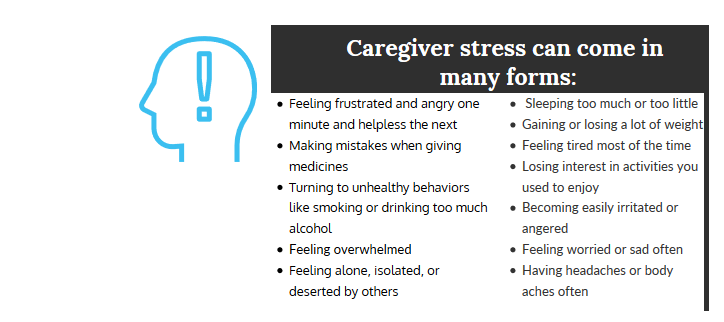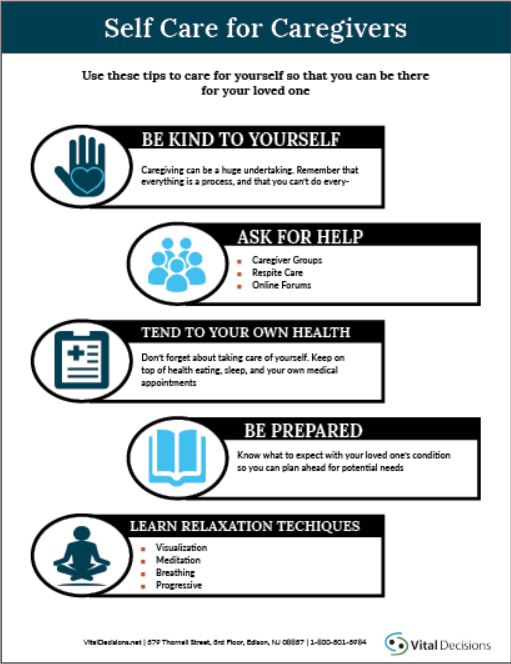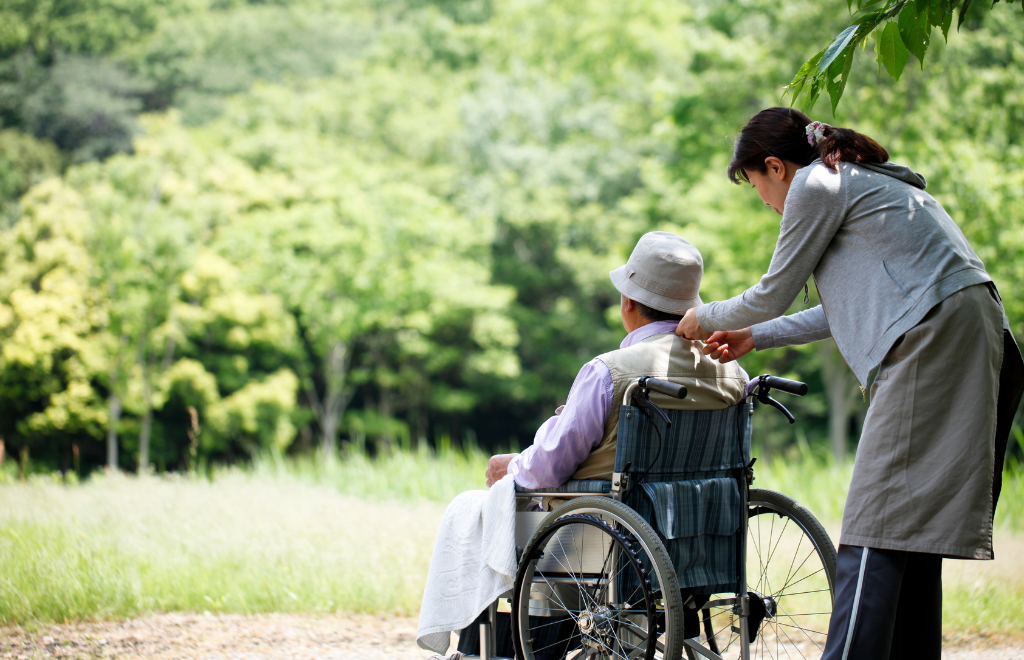Here Are Some Tips to Manage ‘Caregiver Stress’
“Put on your oxygen mask before assisting others.” In light of everything a caregiver keeps in mind, this is perhaps the most important reminder.
When caring for a loved one experiencing a serious health issue, a caregiver manages so much: sorting and administering medications, helping to feed/bathe, going to doctors appointments, taking care of household tasks, finances, and physical needs, showing up at the emergency room or hospital during crisis. And then there’s the emotional roller coaster, for everyone.
The person with illness often worries about their caregivers, too, and “don’t want to be a burden.” When a family experiences advanced illness together, they collectively experience physical, emotional, financial trials. Emotions can run high. When a family experiences an acute medical crisis or chronic condition, caregivers often experience stress, burnout or fatigue.
The Cleveland Clinic describes caregiver burnout or stress as “a state of physical, emotional and mental exhaustion. It may be accompanied by a change in attitude, from positive and caring to negative and unconcerned. Burnout can occur when caregivers don’t get the help they need, or if they try to do more than they are able, physically or financially.” (2)

It’s easy for caregivers to feel guilty in caring for themselves- but it’s vital to the longevity of their caregiving and their personal health. After all, if the caregiver runs out of oxygen… how can they assist others?
Ways to manage caregiver stress:

- Know that you can’t do everything. Your self-care will help you manage stress, but some things may require more help. Try to be open to changes as they come, and call upon medical staff and supports if something feels beyond your knowledge or skills.
- Remind yourself that you are doing the best you can.
- It’s natural for emotions to come in waves. Allow yourself to feel whatever you need to as different emotions rise and fall. Practice compassion for yourself.

- Ask a neighbor, family member or friend to step in while you take some time off, and let go of the responsibilities you’re shouldering. Making time for self-care is the number-one priority for caregivers and often the hardest to achieve because of lack of resources and/or send of responsibility for the loved one with an advanced illness.
- Many communities have adult daycare services or respite services to give primary caregivers a break from their caregiving duties.
- Some hospitals offer classes that can teach you how to care for someone with an injury or illness. To find these classes, ask your doctor or call your local Area Agency on Aging.
- Join a support group in your area to connect with people who are also caring for loved ones with an advanced illness. You can share stories, pick up caregiving tips, and get support from others who face the same challenges as you do.
- Check out online forums to meet other caregivers.

- As a caregiver, be sure to keep up with your own health needs. If possible, schedule personal appointments at the same clinics and times as your loved one to cut down on timing/transportation issues.
- Remember to eat regularly, and eat well as much as possible.
- Get moving, in fresh air whenever possible. Movement doesn’t have to be a full workout at the gym every day just get up and get moving a little bit each day. This is easiest if your loved one tends to nap or settle in to watch a show each day
- Prioritize sleep- exhaustion can cause serious medical issues or at the very least knock you off your ‘A-game’ when tackling serious caregiving tasks like medication or assisting a loved one with their mobility
- Don’t neglect your own medication regimen.

- Learn more about what to expect as your loved ones health changes, so you don’t feel you’re having to make decisions in a crisis. Ask questions of people who have been in similar situations, ask the medical team for more information about what to expect
- Prepare for future medical decisions ahead of time. When families have to make difficult medical decisions in a crisis, the stress can be overwhelming. Advance Care Planning means thinking ahead and sharing preferences for care, so caregivers understand their loved one’s wishes every step of the way

Here are 4 easy, quick, and free ways to practice relaxing in just 1-2 minutes*:
- Visualization (mentally picturing a place or situation that is peaceful and calm)
- Meditation (which can be as simple as dedicating 15 minutes a day to letting go of all stressful thoughts)
- Breathing exercises (slowing your breathing and focusing on taking deep breaths)
- Progressive muscle relaxation (tightening and then relaxing each muscle group, starting at one end of your body and working your way to the other end)
Like these tips? Download our graphic and display it as your gentle reminders:

What are some tips you’ve heard about or practiced? Have you ever tried one of these tips, if so how did it go for you?






